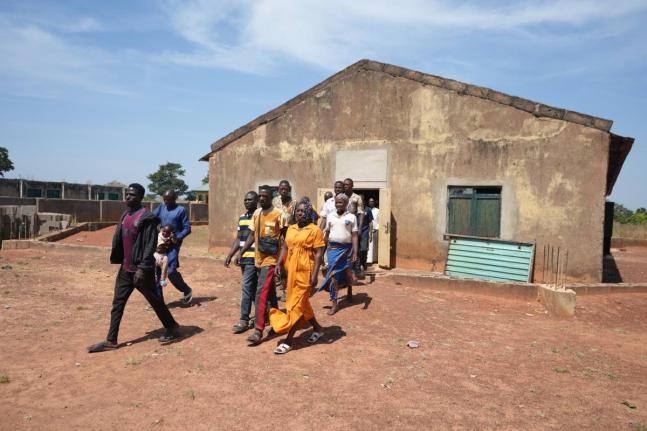US signals broader efforts to protect Christians following Trump’s military threat
Loading article...

WASHINGTON (AP):
President Donald Trump’s administration is promoting efforts to work with Nigeria’s government to counter violence against Christians, signalling a broader strategy since he ordered preparations for possible military action and warned that the United States could go in “guns-a-blazing” to wipe out Islamic militants.
A State Department official said this past week that plans involve much more than just the potential use of military force, describing an expansive approach that includes diplomatic tools, such as potential sanctions, but also assistance programmes and intelligence-sharing with the Nigerian government.
Defence secretary Pete Hegseth also met with Nigeria’s national security adviser to discuss ways to stop the violence, posting photos on social media of the two of them shaking hands and smiling. It contrasted with Trump’s threats this month to stop all assistance to Nigeria if its government “continues to allow the killing of Christians”.
The efforts might support Trump’s pledge to avoid more involvement in foreign conflicts and come as the US security footprint has diminished in Africa, where military partnerships have either been scaled down or cancelled. American forces likely would have to be drawn from other parts of the world for any military intervention in Nigeria.
Still, the Republican president has kept up the pressure as Nigeria faced a series of attacks on schools and churches in violence that experts and residents say targets both Christians and Muslims.
“I’m really angry about it,” the president said Friday when asked about the new violence on the “Brian Kilmeade Show” on Fox News Radio. He alleged that Nigeria’s government has “done nothing” and said “what’s happening in Nigeria is a disgrace.”
The Nigerian government has rejected his claims.
Following his meeting with Nigerian national security adviser Mallam Nuhu Ribadu, Hegseth posted on social media that the Pentagon is “working aggressively with Nigeria to end the persecution of Christians by jihadist terrorists.”
“Hegseth emphasised the need for Nigeria to demonstrate commitment and take both urgent and enduring action to stop violence against Christians and conveyed the Department’s desire to work by, with, and through Nigeria to deter and degrade terrorists that threaten the United States,” the Pentagon said in a statement.
Jonathan Pratt, who leads the State Department’s Bureau of African Affairs, told lawmakers Thursday that “possible Department of War engagement” is part of the larger plan, while the issue has been discussed by the National Security Council, an arm of the White House that advises the president on national security and foreign policy.
But Pratt described a wide-ranging approach at a congressional hearing about Trump’s recent designation of Nigeria as “a country of particular concern” over religious freedom, which opens the door for sanctions.
“This would span from security to policing to economic,” he said. “We want to look at all of these tools and have a comprehensive strategy to get the best result possible.”\
‘WILL NOT BE REVERSED OVERNIGHT’
The violence in Nigeria is far more complex than Trump has portrayed, with militant Islamist groups like Boko Haram killing both Christians and Muslims. At the same time, mainly Muslim herders and mostly Christian farmers have been fighting over land and water. Armed bandits who are motivated more by money than religion also are carrying out abductions for ransom, with schools being a popular target.
In two mass abductions at schools this past week, students were kidnapped from a Catholic school Friday and others taken days earlier from a school in a Muslim-majority town. In a separate attack, gunmen killed two people at a church and abducted several worshippers.
The situation has drawn increasing global attention. Rapper Nicki Minaj spoke at a UN event organised by the US, saying “no group should ever be persecuted for practising their religion.”
If the Trump administration did decide to organise an intervention, the departure of US forces from neighbouring Niger and their forced eviction from a French base near Chad’s capital last year have left fewer resources in the region.
Options include mobilising resources from far-flung Djibouti in the Horn of Africa and from smaller, temporary hubs known as cooperative security locations. US forces are operating in those places for specific missions, in conjunction with countries such as Ghana and Senegal, and likely aren’t big enough for an operation in Nigeria.
The region also has become a diplomatic black hole following a series of coups that rocked west Africa, leading military juntas to push out former Western partners. In Mali, senior American officials are now trying to re-engage the junta.
Even if the US military redirects forces and assets to strike inside Nigeria, some experts question how effective military action would be.